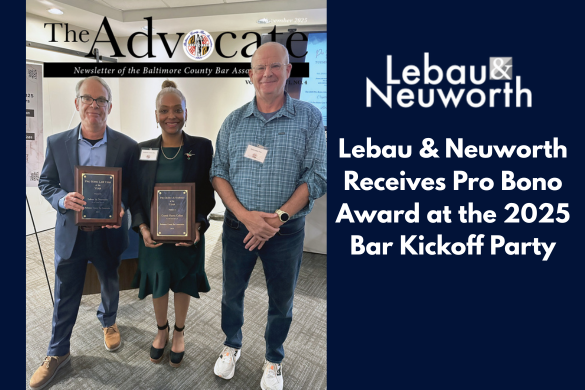Employees involved in employment disputes with their employers often wonder whether their lawyer can talk to managers and supervisors without the employer's knowledge or consent. State law differs on this subject and the results often vary. Oftentimes, current or former employees may have information helpful to an employee with a dispute with his or her employer. However, under the Maryland Rules governing Maryland attorneys representing Maryland employees, there are certain rules worth knowing. The Maryland Rules of Professional Conduct govern what a Maryland lawyer ethically can and cannot do. Rules 4.2 and 4.4(b) are the relevant sections. See http://www.law.cornell.edu/ethics/md/code/. The following are the basic rules regarding what your lawyer can do with respect to communicating with current and former managers and supervisors:
- Your lawyer cannot communicate with a current officer, director, or manager of the organization you are suing or have a dispute with.
- Your lawyer may communicate with a current employee or agent of the organization so long as the lawyer first makes sure that these persons are not in direct contact with the organization’s lawyers dealing with the dispute. Your lawyer must also make sure to disclose his/her identity and your adverse interest to the employer.
- Your lawyer may communicate with former managers or supervisors of the organization so long as s/he does not request information that is protected from disclosure by law such as trademark secrets, medical information, or communications made between an attorney and her client.
A recent case is illustrative. In Chang –Williams v. United States of America, 2012 WL 253440 (D. Md. January 25, 2012). , the Defendant, the United States Government, sought a protective order prohibiting contacts between the claimant's counsel and former and current government employees without the knowledge of the government. The court found that counsel violated the Maryland Rules of Professional Conduct when she communicated with a current managing agent of the United States Government without the permission or knowledge of the opposing counsel. On the other hand, the court found that the claimant's counsel had not violated the Maryland Rules of Professional Conduct when she contacted one of Defendant's former employees without opposing counsel's knowledge. The difference was that the first employee counsel contacted was a current employee while the second employee was a former employee. This distinction is one that your lawyer must not forget. Also, a tip for the unwary - if your Maryland lawyer violates the Rules, you can face serious consequences. Your lawyer can be disqualified from representing you, meaning you will have to find another lawyer, which can be very difficult in the middle of case. Also, the Court could also dismiss your case, barring you from any recovery. Bottom-line: Make sure your Maryland attorney knows what he or she is doing.











